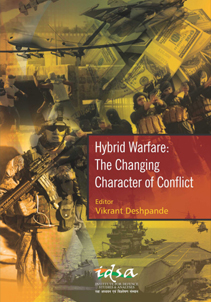Network Centric Warfare in the Context of ‘Operation Iraqi Freedom’
The Revolution in Military Affairs (RMA) moves on the wheels of Technology, Doctrine and Organisation; however, the main support structure, which gives it the predominant strength, is undoubtedly the technology. The changing concepts of warfare are driven by the available technology of the times. While sophisticated weapons and sensors have greatly enhanced combat efficiency, developments in Information and Communication Technology (ICT) have enabled greater connectivity and information sharing among widely spread force components.
- Shitanshu Mishra
- October 2003






